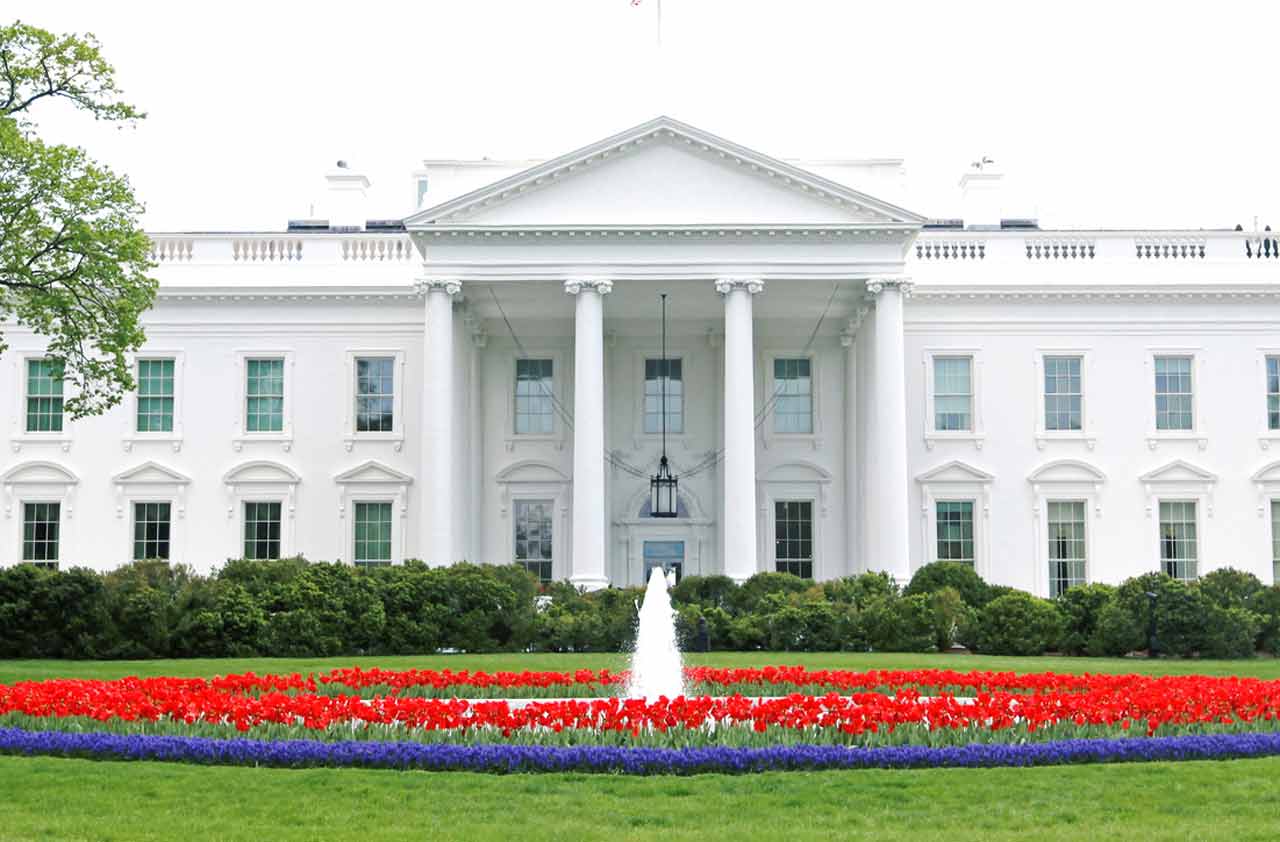Donald Trump’s Presidency and Your Investment Portfolio
Whether you’re concerned, elated or just baffled by the new world order, unless you stick to a solid plan, your emotions can steer you into making a mistake that’ll cost you “Big League.”


Profit and prosper with the best of Kiplinger's advice on investing, taxes, retirement, personal finance and much more. Delivered daily. Enter your email in the box and click Sign Me Up.
You are now subscribed
Your newsletter sign-up was successful
Want to add more newsletters?

Delivered daily
Kiplinger Today
Profit and prosper with the best of Kiplinger's advice on investing, taxes, retirement, personal finance and much more delivered daily. Smart money moves start here.

Sent five days a week
Kiplinger A Step Ahead
Get practical help to make better financial decisions in your everyday life, from spending to savings on top deals.

Delivered daily
Kiplinger Closing Bell
Get today's biggest financial and investing headlines delivered to your inbox every day the U.S. stock market is open.

Sent twice a week
Kiplinger Adviser Intel
Financial pros across the country share best practices and fresh tactics to preserve and grow your wealth.

Delivered weekly
Kiplinger Tax Tips
Trim your federal and state tax bills with practical tax-planning and tax-cutting strategies.

Sent twice a week
Kiplinger Retirement Tips
Your twice-a-week guide to planning and enjoying a financially secure and richly rewarding retirement

Sent bimonthly.
Kiplinger Adviser Angle
Insights for advisers, wealth managers and other financial professionals.

Sent twice a week
Kiplinger Investing Weekly
Your twice-a-week roundup of promising stocks, funds, companies and industries you should consider, ones you should avoid, and why.

Sent weekly for six weeks
Kiplinger Invest for Retirement
Your step-by-step six-part series on how to invest for retirement, from devising a successful strategy to exactly which investments to choose.
Political news has been dominating the headlines since the start of the election cycle last year, and it doesn’t look like it’s going to be letting up anytime soon. After a strong end to 2016, we have started off 2017 equally as strong. This has led people to ask me what I think about the markets going forward.
There’s a saying that markets have a way of making people look foolish, especially if you think you can predict what will happen next. I don’t pretend to know what will happen. But whatever your feelings are right now — positive or negative — my advice is always the same: Don’t put your emotions in the driver’s seat of your portfolio.
Here’s why.
From just $107.88 $24.99 for Kiplinger Personal Finance
Become a smarter, better informed investor. Subscribe from just $107.88 $24.99, plus get up to 4 Special Issues

Sign up for Kiplinger’s Free Newsletters
Profit and prosper with the best of expert advice on investing, taxes, retirement, personal finance and more - straight to your e-mail.
Profit and prosper with the best of expert advice - straight to your e-mail.
A little bit of history
In 25 years, I’ve yet to see a situation where political news justified abandoning a thoughtful, disciplined and diversified approach to personal investing. That’s a period of time that saw the longest economic expansions on record (according to the National Bureau of Economic Research), the largest recession in the modern age, four presidents from two parties and the biggest terrorist attack in history on American soil.
Look back a little further, and, in no particular order, we’ve seen political scandals, a presidential assassination, the brink of hostilities between the U.S. and the former Soviet Union, and the fall of the Berlin Wall.
And yet, all the major indexes recently hit historic highs.
Even though past performance doesn’t guarantee future returns, the example is illustrative: Despite what has arguably been a lot of turmoil and change over the years, the economy has a way of continuing to march forward when time is on your side.
Responsible investors don’t react – they plan
In other words, failing to plan because you’re either too excited or too fearful is, as the saying goes, planning to fail. Procrastination and “analysis paralysis” are real risks — and a big mistake.
It’s my opinion that the best thing you can do in any environment is to build a thoughtful and diversified approach to your portfolio, and to stick with that program. This especially applies to long-term time horizons: If you’re planning to retire in 20 years, you’ll see at least three presidential administrations in that time — and you’ll probably see a whole lot of other things, too. But discipline, planning and a prudent approach to risk can help to see you through it.
Of course, if you’re working with a shorter time horizon, your needs will almost certainly be different. You might need to adjust the risk in your portfolio, and you may need to adapt your plans for potential volatility. However, that’s just good planning: These are steps that I would advise no matter what’s going on in Washington.
Use this moment for something good
When it comes to politics, whether you’ve been concerned, elated, indifferent or distracted in response to all the news, times of heightened emotions can be put to good use. Sentiment shouldn’t have a seat at the table when it comes to investing, but strong feelings can help push you to the table.
Concerns about risk and volatility should spur candid conversations with your adviser about the risk parameters in your portfolio and whether they’re in line with your expectations and needs. Feelings of uncertainty about the future are an opportunity to talk about discipline and the important role that uncertainty always plays in a diversified portfolio.
In situations where you’re having trouble relating to your adviser or aren’t sure whether your portfolio is doing what you need it to be doing, times of emotion can help you reassess your advisory relationship and whether it’s meeting your needs.
Staying with the big picture
What’s important to remember is this: While the markets are often emotional, investing shouldn’t be.
The way we talk about your portfolio and your strategy should be methodical, thoughtful and based on an honest assessment of your needs and the information we have. No one can predict what’s going to happen in the long run, which is why prudence and discipline are so important in investing.
Whether you’re feeling concerned, elated or something else entirely, use this opportunity to build a robust plan for your finances — and if you’re looking for advice or want to talk, I’m always available.
Written by Bradford Pine with Anna B. Wroblewska. Brad is a wealth adviser and president of Bradford Pine Wealth Group, based in Garden City, New York. BP Wealth Group assists individuals and entrepreneurs to create wealth, simplify their lives and plan for retirement.
Profit and prosper with the best of Kiplinger's advice on investing, taxes, retirement, personal finance and much more. Delivered daily. Enter your email in the box and click Sign Me Up.

Brad Pine is a wealth adviser and president of Bradford Pine Wealth Group, based in Garden City, N.Y. BP Wealth Group assists individuals and entrepreneurs to create wealth, simplify their lives and plan for retirement. Honesty, integrity and reliability are the foundations of Pine's investment philosophy.
-
 5 Vince Lombardi Quotes Retirees Should Live By
5 Vince Lombardi Quotes Retirees Should Live ByThe iconic football coach's philosophy can help retirees win at the game of life.
-
 The $200,000 Olympic 'Pension' is a Retirement Game-Changer for Team USA
The $200,000 Olympic 'Pension' is a Retirement Game-Changer for Team USAThe donation by financier Ross Stevens is meant to be a "retirement program" for Team USA Olympic and Paralympic athletes.
-
 10 Cheapest Places to Live in Colorado
10 Cheapest Places to Live in ColoradoProperty Tax Looking for a cozy cabin near the slopes? These Colorado counties combine reasonable house prices with the state's lowest property tax bills.
-
 Don't Bury Your Kids in Taxes: How to Position Your Investments to Help Create More Wealth for Them
Don't Bury Your Kids in Taxes: How to Position Your Investments to Help Create More Wealth for ThemTo minimize your heirs' tax burden, focus on aligning your investment account types and assets with your estate plan, and pay attention to the impact of RMDs.
-
 Are You 'Too Old' to Benefit From an Annuity?
Are You 'Too Old' to Benefit From an Annuity?Probably not, even if you're in your 70s or 80s, but it depends on your circumstances and the kind of annuity you're considering.
-
 In Your 50s and Seeing Retirement in the Distance? What You Do Now Can Make a Significant Impact
In Your 50s and Seeing Retirement in the Distance? What You Do Now Can Make a Significant ImpactThis is the perfect time to assess whether your retirement planning is on track and determine what steps you need to take if it's not.
-
 Your Retirement Isn't Set in Stone, But It Can Be a Work of Art
Your Retirement Isn't Set in Stone, But It Can Be a Work of ArtSetting and forgetting your retirement plan will make it hard to cope with life's challenges. Instead, consider redrawing and refining your plan as you go.
-
 The Bear Market Protocol: 3 Strategies to Consider in a Down Market
The Bear Market Protocol: 3 Strategies to Consider in a Down MarketThe Bear Market Protocol: 3 Strategies for a Down Market From buying the dip to strategic Roth conversions, there are several ways to use a bear market to your advantage — once you get over the fear factor.
-
 For the 2% Club, the Guardrails Approach and the 4% Rule Do Not Work: Here's What Works Instead
For the 2% Club, the Guardrails Approach and the 4% Rule Do Not Work: Here's What Works InsteadFor retirees with a pension, traditional withdrawal rules could be too restrictive. You need a tailored income plan that is much more flexible and realistic.
-
 Retiring Next Year? Now Is the Time to Start Designing What Your Retirement Will Look Like
Retiring Next Year? Now Is the Time to Start Designing What Your Retirement Will Look LikeThis is when you should be shifting your focus from growing your portfolio to designing an income and tax strategy that aligns your resources with your purpose.
-
 I'm a Financial Planner: This Layered Approach for Your Retirement Money Can Help Lower Your Stress
I'm a Financial Planner: This Layered Approach for Your Retirement Money Can Help Lower Your StressTo be confident about retirement, consider building a safety net by dividing assets into distinct layers and establishing a regular review process. Here's how.